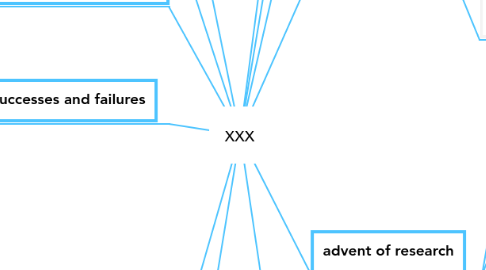
1. tribal apothecary
1.1. wise man/woman of the tribe
1.2. prepares the remedy using medicinal materials
1.3. led to the art of apothecary
2. priest-physician
2.1. the art of apothecary combined with priestly functions
2.2. became known as the healer of the body and soul
3. practice of drug therapy
3.1. certain therapies became more effective than others over time
4. successes and failures
4.1. successful treatments of tribal apothecaries are mainly due to psychologic rather than therapeutic effects
4.1.1. gave rise to placebo therapy
4.2. failed treatments of tribal apothecaries were rarely questioned and are due to: - ineffective medicines - under- or overdosage - toxicity
5. emergence of scientific viewpoints
5.1. Hippocrates
5.1.1. a Greek physician
5.1.2. Father of Medicine
5.2. Dioscorides
5.2.1. a Greek physician and botanist
5.2.2. De Materia Medica
5.3. Claudius Galen
5.3.1. a Greek pharmacist-physician
5.3.2. Galenic pharmacy
5.4. Paracelsus
5.4.1. a Swiss physician and chemist
5.4.2. Pharmacy based on chemical science
6. Philadelphia College of Pharmacy
6.1. the first school of pharmacy established in 1821
7. human disease
7.1. believed to be caused by demons/evil spirits entering the body
8. instinct to survive and relieve pain
8.1. use of spiritual incantations
8.2. application of noisome materials
8.3. administration of specific herbs or plant materials
9. pharmakon
9.1. drugs can be used for good and evil
9.2. knowledge of drugs and application to disease meant power
10. Ebers papyrus
10.1. a surviving artifact proving the existence of early drugs
10.2. a 60-foot-long scroll dating to the 16th century BC, named after Georg Ebers, a German egyptologist
10.3. contains more than 800 drug formulas and mentions more than 700 drugs which are mainly botanical
11. advent of research
11.1. Karl Wilhelm Scheele
11.1.1. Swede pharmacist
11.1.2. discovered various chemicals as well as oxygen
11.2. Friedrich Serturner
11.2.1. German pharmacist
11.2.2. isolated morphine from opium
11.3. Joseph Caventou & Joseph Pelletier
11.3.1. French pharmacists
11.3.2. isolated quinine and cinchonine from cinchona; strychnine and brucine from nux vomica
11.4. Pierre Robiquet
11.4.1. French pharmacist
11.4.2. separated codeine from opium
11.5. Joseph Pelletier & Pierre Robiquet
11.5.1. isolated caffeine
12. creation of drug standards
12.1. United States Pharmacopeia (USP)
12.1.1. created in 1820 to aid in establishing uniform standards to ensure the quality of drugs
12.2. National Formulary
12.2.1. another official compendium aside from the USP before both were unified as a single national compendium in 1975
12.3. Other pharmacopeias
12.3.1. International Pharmacopeia (IP) by WHO
12.3.2. Homeopathic Pharmacopeia of the United States (HPUS)
12.3.3. European Pharmacopeia (EP)
